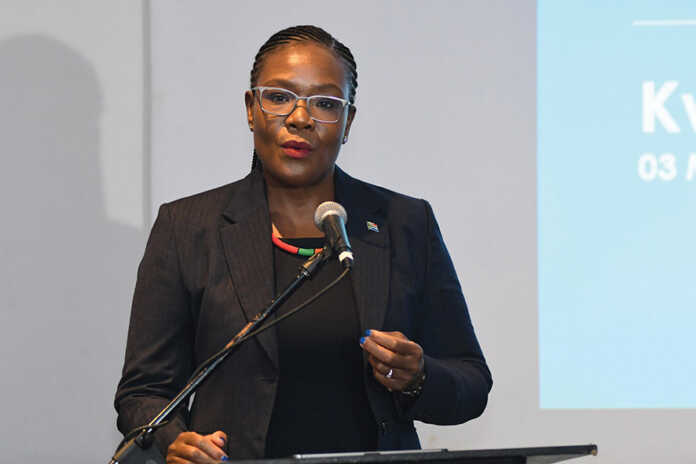Auditor-General Tsakani Maluleke says her office cannot fight corruption in government on its own, even with the additional powers granted to it by law.
According to Maluleke, her office has already uncovered about R8-billion in losses in municipalities under the Municipal Finance Management Act (MFMA), and R14-billion in departments and public entities under the Public Finance Management Act (PFMA).
But most of the money lost, she said, is most likely not to be retrieved because the audits take place a long time after an incident has occurred.
Maluleke urged politicians, public servants, and law enforcement agencies to take greater responsibility in preventing and responding to wrongdoing in their departments.
She was speaking at the National Church Leaders Anti-Corruption Conference on Wednesday.
“They’ll say, well, we gave the AG more powers, and it’s all going to be fine. They’re going to help us fight corruption. None of these things are going to happen. And then what we found interesting is that we would go to a minister or a mayor, and we’d say to them, these are the findings in your environment.
“You have these problems, these leakages through inappropriate contracts that have been issued. You have these problems with uranium expenditures, and then they’ll say to us, but AG, we gave you powers. Why don’t you do something about it?” said Maluleke.
She also warned against the common belief that giving her office more authority would automatically solve the problem.
Mistaken belief that AG will act unaided
She explained that when her team presents findings of wasteful or irregular spending, some ministers and mayors often respond by saying the AG must take action, since new powers were given to her office.
However, she said, this expectation misunderstands the role of the auditor-general.
She said public officials are responsible for preventing, detecting, and acting on issues before her audits take place.
Maluleke also criticised Members of Parliament who complain when the same audit findings appear year after year. She said this reflects poorly on those responsible for oversight and governance.
She said her office uses its legal powers to follow up on material irregularities, which include fraud, theft or a breach of duty that causes financial loss or harm to the public.
In such cases, she explained that the auditor-general is required not only to report them but also to monitor whether appropriate action is taken.
However, even with these powers, Maluleke stressed that her office cannot replace the role of appointed officials.
When her auditors identify a loss or wrongdoing, the accounting officer involved is expected to respond by investigating, strengthening internal controls, disciplining staff, and recovering lost funds.
Many hands make light work
Only when officials fail to act can her office escalate the matter, including referrals to the Special Investigating Unit or the Hawks.
She cited one case where the Hawks followed through and made arrests based on audit findings.
But later, she learned that the National Prosecuting Authority (NPA) had chosen not to proceed with the case, a decision she found disappointing and confusing.
This, Maluleke said, highlights the need for strong and effective law enforcement.
Looking back at the COVID-19 pandemic, she pointed to a period when law enforcement worked well.
During that time, a special “fusion centre” was set up to coordinate investigations into irregularities in PPE procurement and abuse of relief funds. Because her office moved quickly, they were able to feed information to the centre, which led to arrests, asset seizures, and prosecutions before the year ended.
This, she said, proved that rapid action and proper follow-up are possible when institutions work together.
However, she expressed concern that this level of coordination is not consistent.



